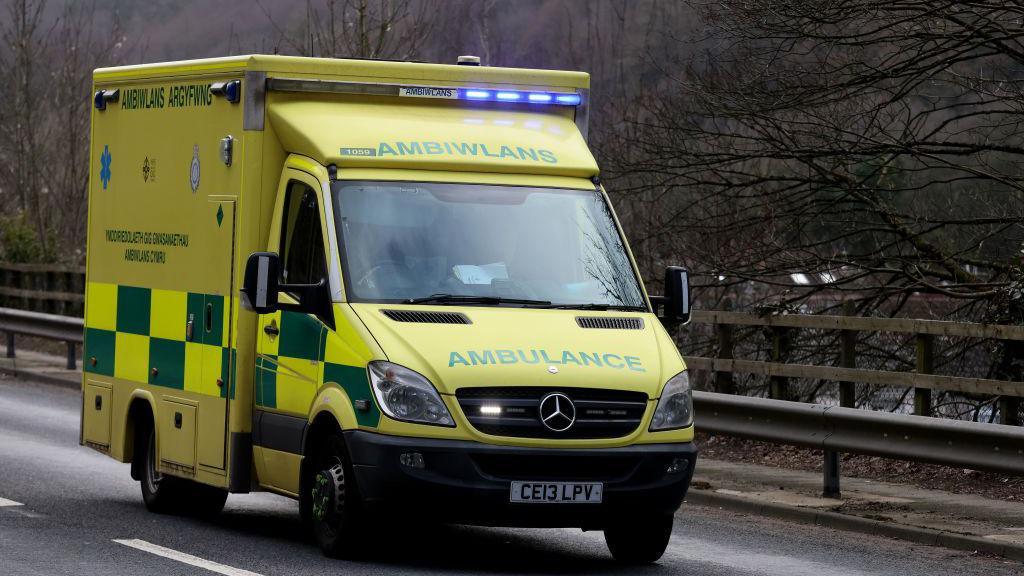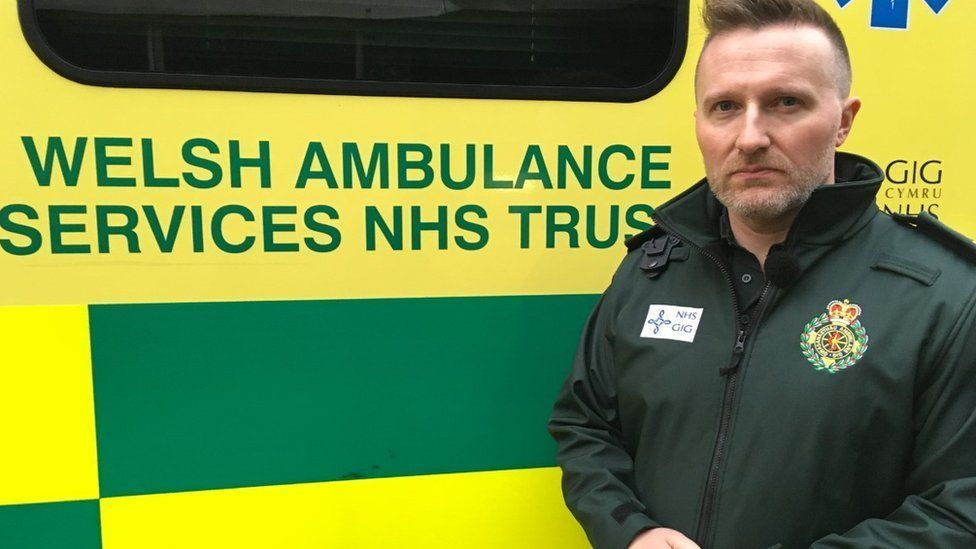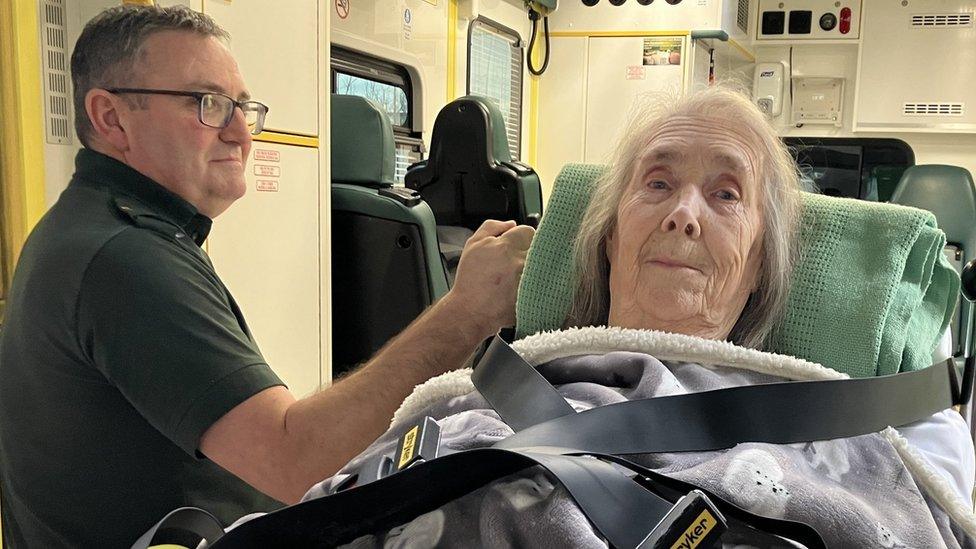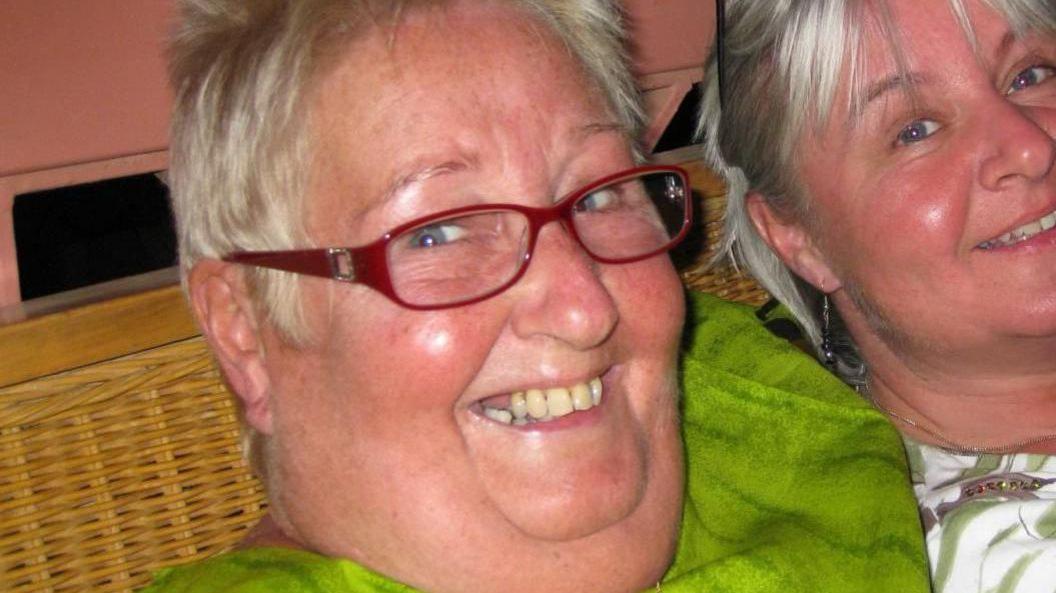Ambulance response target may change after failures

Ambulances are meant to respond to the most life-threatening calls in eight minutes
- Published
Ambulance response targets in Wales may change in 2025, after four years of the service failing to meet its key measure.
A total of 65% of the most life-threatening calls are expected to arrive to a patient within eight minutes, but this has been missed for the past 51 months.
Health Secretary Jeremy Miles has asked experts to look at the "appropriateness" of the target.
The chief executive of Welsh Ambulance Services NHS Trust, Jason Killens, said "avoidable harm" was happening to Welsh patients, particularly in the second-most serious category.
Calls have been prioritised as red, amber and green since 2015, with ambulances expected to arrive at emergencies within eight minutes for the past 50 years.
Since the colour-coding system was introduced the number of "red" calls has grown steadily.
More than a quarter of 21,000 emergencies that needed a vehicle were categorised in this way in October.
Response times to "amber" calls - which includes chest pains and strokes - have been impacted by hundreds of ambulances each month being stuck for hours outside hospitals waiting to hand over patients.
Health officials said an ageing and sicker population was one reason for the targets being missed, but it said the ambulance service was also fine tuning what categories patients should fit into.
But there is also an acknowledgement that people's conditions have got worse while waiting for an ambulance to arrive.
The latest figures show only 50.4% of red calls arrived within eight minutes, while there are far more green calls with minor conditions who can be dealt with over the phone or without hospital treatment.
Response times for amber calls have jumped from 11 minutes in 2015 to almost two hours.
These make up 70% of responses.
Ambulance management said despite having recruited 500 extra staff in recent years, waits of several hours outside emergency units meant it took longer to reach more people.
BBC Wales analysis of handover times found an average of nearly 52 minutes spent outside hospitals.
There were also 1,863 vehicles a month spending four hours or more each visit outside A&Es.

Jason Killens said the ambulance service was very different from when the eight-minute target was introduced
Mr Killens said: "Avoidable harm is happening to patients, sadly across Wales, and that happens predominantly in the amber category."
He said that involved patients who were life threatened and those not immediately life threatened.
"What we've seen over the last few years is is a growing trend of extended response times for patients in that category."
A cross-party committee of Senedd members looked at these issues in the summer.
Jeremy Miles told Senedd members an expert group, made up of clinical and health service leads, would now "focus on measuring the quality and safety of the service".
The aim is for "realistic" and "achievable" targets.
Conservative health spokesman Sam Rowlands said they had all heard horror stories around long waits and he welcomed the announcement but hoped there would be "clear targets in place so there was proper accountability and transparency".
Plaid Cymru health spokesman Mabon ap Gwynfor said core problems in care services needed to be addressed that were not under the control of the ambulance service and a holistic approach was "desperately needed".
Analysis by Owain Clarke, BBC Wales health correspondent
Whether the current eight-minute red targets stays, goes or is changed, we simply don't know yet. That'll be for the review to take a view on.
But I think we will see in any new targets more emphasis, perhaps not just on time - but on the quality of care a patient eventually gets.
Are patients they getting the right care and assessments on the phone?
Do patients with strokes get to the right place first time, similarly patients with heart problems?
Are the people making the 999 call given effective instructions about CPR?
So we might see more of those kind of quality measures.
But one of the biggest challenges for the ambulance service is how many crews end up being stuck outside full A&E departments.
I've spoken to staff, who have been entirely frustrated because they’ve had to spend an entire shift stuck and unable to respond to any new 999 calls in the community.
We're told this review won't be looking at setting any specific targets for hospitals and health boards to reduce these handover delays.
And some might argue it'll be almost impossible to improve ambulance performance unless that issue is addressed.
Related topics
- Published18 December 2023

- Published21 November 2024

- Published9 August 2024
